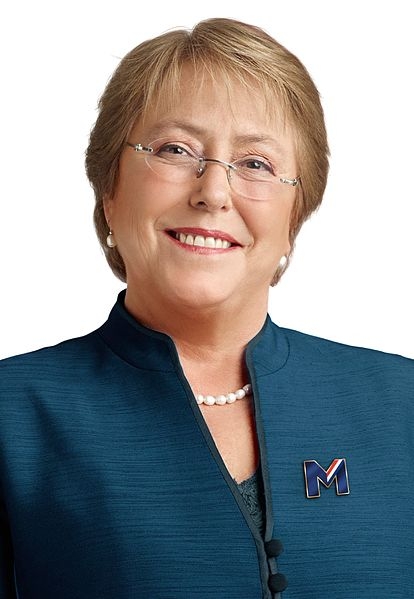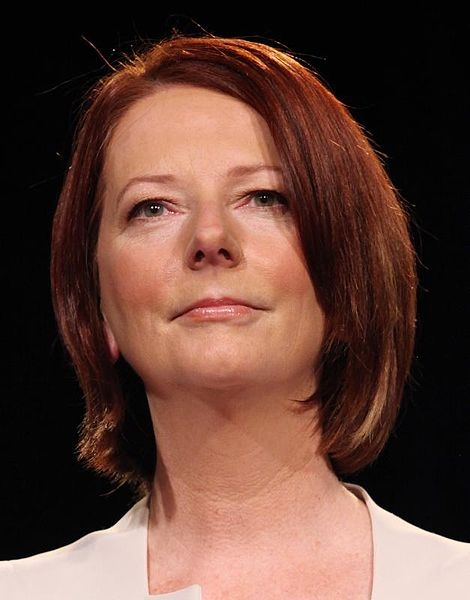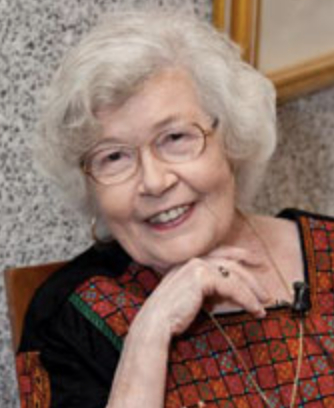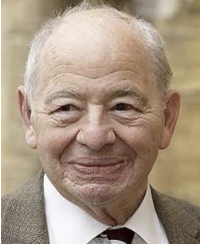September 29
Michelle Bachelet

On this date in 1951, Michelle Bachelet was born in Santiago, Chile, to an archaeologist mother and father who was a general in the air force. She attended the University of Chile for an education in medicine, and during Salvadore Allende’s government, she participated in the Socialist Youth movement. General Pinochet, supported by the U.S. Central Intelligence Agency, led a coup in 1973 against the democratically elected Allende government, for which Bachelet’s father worked.
Bachelet watched the bombing of La Moneda Palace from the roof of her medical campus and later that day learned that her father had been arrested for treason. He died in prison a year later as a result of torture. She began hiding people wanted by Augusto Pinochet’s right-wing regime. In 1975 Pinochet’s secret police arrested Bachelet and her mother and exiled them to Australia after harsh interrogations. Eventually moving to East Germany, Bachelet attended medical school in Berlin and married an architect and fellow Chilean exile. They had two children together.
Bachelet returned to Chile in 1979 with her family and worked as a physician while becoming politically active when democracy was restored in 1990. In 2002 she was named to head the Defense Ministry, making her the first woman in Latin America to hold such a position. She served presidential terms from 2006-10 and from 2014-18, the first woman in Chile to occupy the position. In August 2018 the United Nations nominated her to become the next High Commissioner for Human Rights.
Bachelet endured much criticism for her open agnosticism and secular reforms such as making the morning-after pill free at state-run hospitals, an act which infuriated the Catholic Church. As reported in the Washington Post, Bachelet said, “I’m agnostic. … I believe in the state.” (“Female, Agnostic and the Next Presidente?” Dec. 10, 2005.)
Photo by Comando Michelle Bachelet at Descarga y Actua under Attribution-ShareAlike 3.0 Chile.
"I was a woman, a divorcee, a socialist, an agnostic … all possible sins together."
— Bachelet, on why she was an unlikely contender for president of a strongly Catholic country, USA Today (Jan. 15, 2009)
Julia Gillard

On this date in 1961, Australia’s first female prime minister, Julia Eileen Gillard, was born in Wales into a Baptist family that migrated to Australia in 1965. Initially she wanted to be a teacher but a friend’s mother suggested a career in law since she already had excellent debating skills. Gillard studied art and law at the University of Adelaide, where she became active in politics. She transferred to the University of Melbourne and became president of the Australian Union of Students in 1983. She graduated from the University of Melbourne with a degree in law in 1986, worked for a law firm and became its first female partner in 1990.
Specializing in industrial law, Gillard fought to improve working conditions for women in clothing and textile industry sweatshops. In 1996 she was appointed chief of staff for Victorian opposition leader John Brumby and was elected to the federal Parliament in 1998. Gillard was sworn in as Australia’s first female deputy prime minister in 2007, simultaneously heading three cabinet agencies. She ousted Prime Minister Kevin Rudd in 2010.
She told ABC Radio Melbourne in 2010, “I grew up in the Christian church, a Christian background. I won prizes for catechism, for being able to remember Bible verses. I am steeped in that tradition, but I’ve made decisions in my adult life about my own views” and “I’m not going to pretend a faith I don’t feel.” (Telegraph UK, “Australian prime minister ‘does not believe in God.’ ”) She added, “For people of faith, I think the greatest compliment I could pay them is to respect their genuinely held beliefs and not to engage in some pretence about mine.”
PHOTO: MystifyMe Concert Photography (Troy) under CC 2.0
ABC RADIO HOST: Do you believe in God?
GILLARD: No, I don’t, Jon, I’m not a religious person. I’m of course a great respecter of religious beliefs but they’re not my beliefs.— "Julia Gillard risks Christian vote with doubts on God," The Australian (June 30, 2010)
Barbara Mertz

On this date in 1927, author and Egyptologist Barbara Mertz (née Barbara Louise Gross) was born in Canton, Illinois, to a printer and an elementary school teacher. Mertz received a bachelor’s in Egyptology from the University of Chicago in 1947 and earned her Ph.D. in 1952. Unable to find work in academia due to sexism, Mertz began writing, instilling her beloved characters with the courage to fight sexist social mores. Over the course of her career, Mertz wrote nearly 70 books.
Two of her first books, Temples, Tombs and Hieroglyphs: A Popular History of Ancient Egypt (1964) and Red Land, Black Land: Daily Life in Ancient Egypt (1966), were nonfiction. She then wrote exclusively under noms de plume, publishing 37 mystery-suspense novels under the name Elizabeth Peters — drawn from the names of her children Elizabeth and Peter — and 29 thrillers under the name Barbara Michaels. Mertz often married her scholarly interests in archeology and the Middle East with her love of mystery, romance and strong female characters. Her most popular heroine, Amelia Peabody, was a Victorian-era amateur Egyptologist.
Mertz served as president of the American Crime Writers League and as a member of the Egypt Exploration Society, the James Henry Breasted Circle of the University of Chicago Oriental Institute, the Editorial Advisory Board of KMT (“A Modern Journal of Ancient Egypt”) and the National Organization for Women. She received numerous Agatha Award nominations, winning for Naked Once More (1989), two Anthony Award nominations and an Edgar Award nomination. Mertz was named Grandmaster at the 1986 Anthony Awards and received the Mystery Writers of America Grand Master Award in 1998.
She married Richard Mertz in 1950 and they divorced in 1969. She died at age 85. (D. 2013)
"There are always, thank heaven, skeptics who challenge orthodox ideas. They are the great thinkers of all times."
— Mertz, interviewed in the Copperfield Review (April 28, 2012)
Colin Dexter

On this date in 1930, English crime novelist Norman Colin Dexter was born in Stamford, Lincolnshire, to Dorothy (Towns) and Alfred Dexter. His mother worked in a butcher shop and his father ran a petrol filling station and taxi company.
After completing grammar and secondary school, he fulfilled his national service with the British Army’s Royal Corp of Signals as a telegraph operator. He studied classics at Christ’s College, Cambridge, graduating in 1953 and receiving a master’s in 1958.
He taught Latin and Greek literature at several grammar schools before increasing deafness forced him to stop. The last straw was that during a lesson on Virgil’s “Aeneid,” a boy was playing pop music at full volume on a radio but Dexter supposedly heard not a note.
He took employment as senior assistant secretary at the University of Oxford, running the English and classics syllabuses for the examination board from 1966-87, when he retired to concentrate on his writing.
Dexter had started writing general studies textbooks, then in 1975 published “Last Bus to Woodstock,” his first mystery novel, about a young woman killed while hitchhiking. It introduced readers to Detective Chief Inspector Morse of the Thames Valley Constabulary of Kidlington, described by a reviewer as “a gruff misanthrope with a sensitive soul, in love with the music of Wagner and the poetry of A.E. Housman.” (New York Times, March 21, 2017)
Dexter was on the same page as the reviewer, once calling himself “Short, fat, bald, deaf; a lukewarm socialist; a Low Church atheist; a lover of crosswords, Wagner, cask-conditioned beer and the scholar-poet AE Housman; a hater of American musicals, Australian cricketers, litter and the political prejudices of Sir Peregrine Worsthorne.” (The Telegraph, March 21, 2017)
Twelve more novels in the series (and about 80 corpses) would follow. Dexter was, wrote mystery magazine editor Andrew Gulli of The Strand, “one of the greatest crime novelists of the 20th century and deserves to be ranked alongside Chandler, Christie and Doyle.” The television drama “Inspector Morse” based on the series aired on ITV between 1987-2000 and starred John Thaw as Morse. It also spawned a sequel and a prequel. He devoted a book in 2010 to his hobby, “Cracking Cryptic Crosswords.”
He won numerous writing awards, was appointed an Officer of the Order of the British Empire (OBE) for services to literature in 2000 and was elected to the Crime Writers’ Association’s Hall of Fame in 2009.
He married his wife Dorothy (née Cooper), a physiotherapist, in 1956. They had a daughter, Sally, and a son, Jeremy. He died at home in Oxford at age 86. (D. 2017)
"[Morse] evolved as I wrote. Like me he is diabetic, an atheist and a lover of music and art."
— Dexter interview, Thame.net (Nov. 16, 2007)
